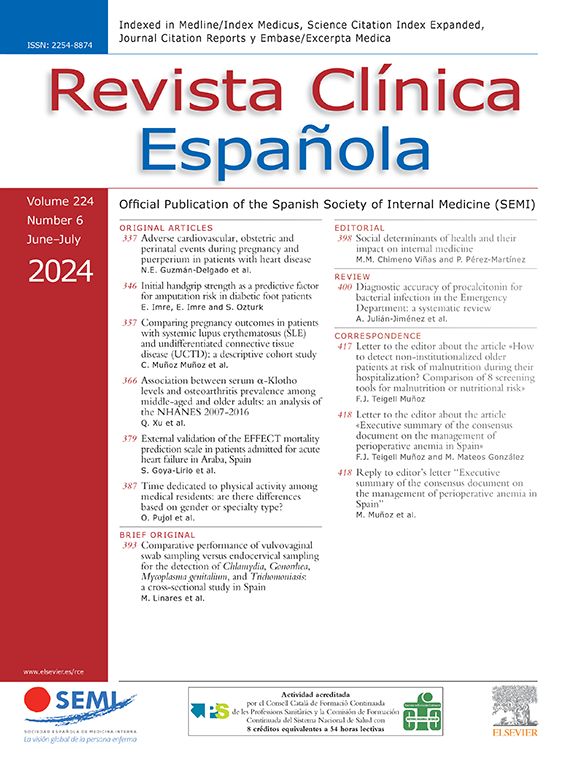We are grateful for the comments made on our article published in Revista Clínica Española1 and would like to respond to the questions raised. Our epidemiological study describes the humoral immunity associated with the prevalence of SARS-CoV-2 neutralizing antibodies induced after two doses of the BNT162b2 vaccine (Pfizer-BioNTech) in a healthcare population. This professional group was of priority interest in Spain, as can be seen in the vaccination strategies. In general, they were administered doses of the BNT162b2 vaccine (Pfizer-BioNTech), as reflected in our study, since 97.5% of the participating subjects received this type of vaccine. The response to other types of vaccines was considered in a similar study in another population.2
As our results show, of the approximately 1500 health workers in the healthcare area, 90.1% (1352/1500) were contacted. Of them, 72.3% (977/1352) participated in the serological tests and 98.7% (964/977) of those answered the questionnaire in its entirety. Participation was voluntary, so the demographic and clinical data obtained from the total sample corresponds to 64.3% (964/1500) of the total number of workers in the healthcare area. It is a representative sample, given that the estimated sample size for a finite population such as that of this study (1500), considering an estimation of ±3%, and assuming in the most unfavorable case a prevalence of 0.5 and a significance of 0.05, 625 subjects would be needed, a value widely exceeded in our study. Participant selection was not random but by flooding, all healthcare personnel were invited to participate. Considering that the vast majority of this at-risk group was vaccinated, whether there was antibody positivity or not was not voluntary, thus minimizing possible selection bias.
In regard to the statement that the study did not provide information on specific characteristics of participants who were positive for antibodies, table 21 reports the variables for this group such as: age, sex, time since last dose, previous SARS-CoV-2 infection, comorbidity, other recent infections, type of vaccine received, and number of doses administered. This contradicts the statement made later in the letter: “The study did not investigate other potential factors that may have an influence on the presence of neutralizing antibodies, such as the vaccine type or underlying health conditions”.
A total of 18.2% of the subjects had a chronic disease that could have affected antibody production, as in the case of diseases that cause compromised immunity3 (cancer, immunosuppressed patients, etc.), which could influence the presence or absence of neutralizing antibodies. This possible influence was not significant in our study.
Increasing the participation rate would not ensure greater representativeness for a population group in which the vaccination effect has occurred in all participants. The following statement, “it should be considered whether to explore additional factors that may influence the presence of antibodies, such as the type of vaccine, comorbidities, or variations in the immune response”, is redundant and has been answered above.




